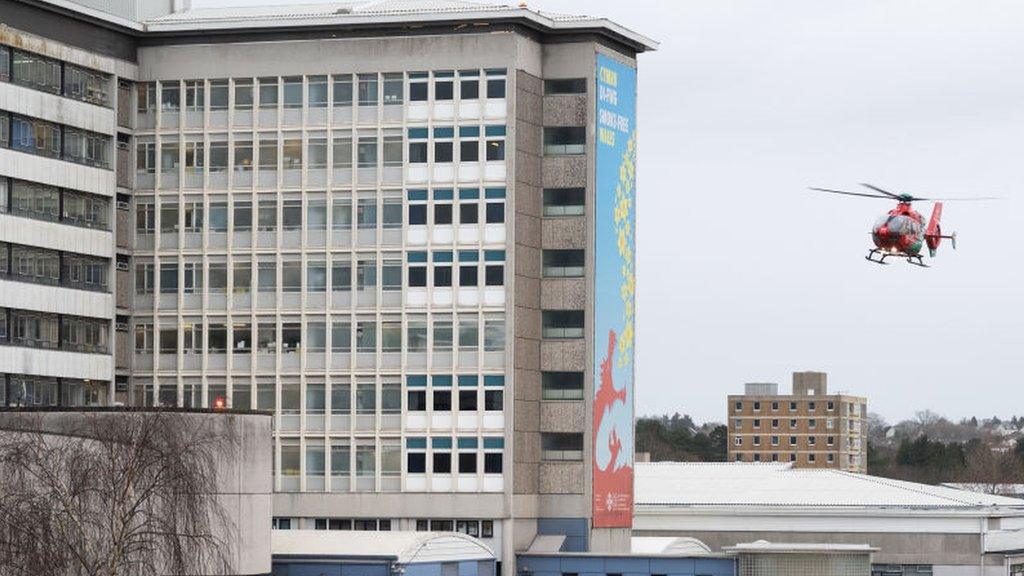Coronavirus: Morriston doctor predicts Easter peak for virus cases
- Published
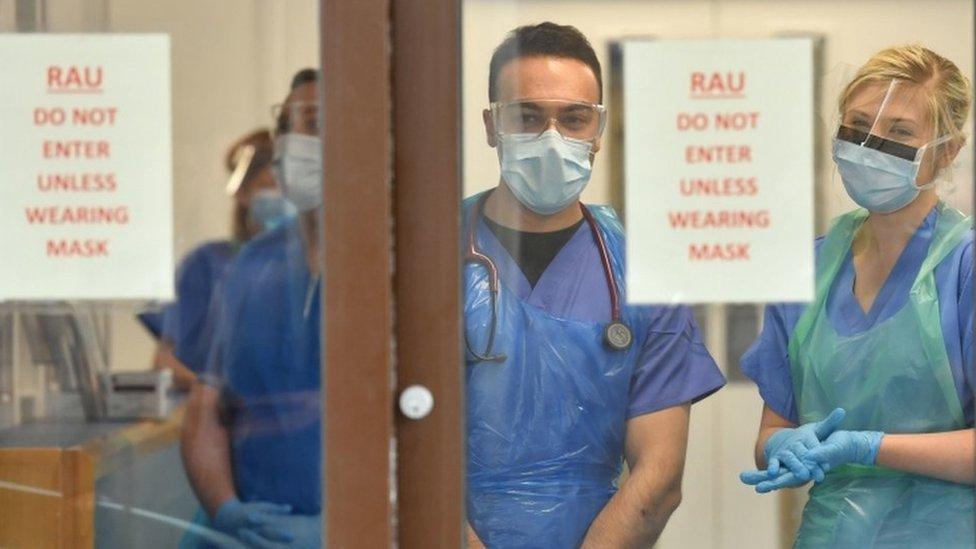
Staff wait to receive coronavirus patients at the door of the Respiratory Assessment Unit at Morriston Hospital
Doctors in Swansea expect the worst of the coronavirus outbreak to hit at Easter time.
An emergency medicine consultant at Morriston Hospital said that "probably by Easter weekend, we're going to be getting towards peaks of activity".
Andy MacNab said that successful social distancing should help slow down the virus's progress.
Nurse managers at a neighbouring hospital say they have been "overwhelmed" by staff volunteering.
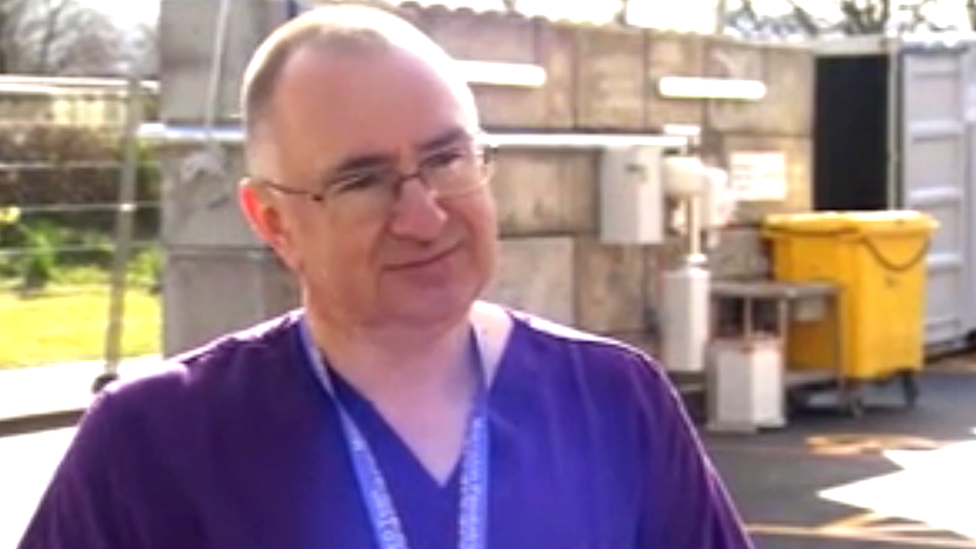
Andy MacNab said all the boundaries between teams have gone "now we’re all in it together"
Morriston is one of the largest hospitals in Wales with 700 beds and has dramatically increased its capacity to deal with the expected demand.
It has plans for 120 ventilated spaces - up from a capacity of 28 intensive care beds.
Doctors are now starting to see an upsurge but feel that they are ahead of the curve, thanks to the preparations.
"The social distancing hopefully will mean that rather than a really big spike we get a long sustained plateau of activity," said Mr MacNab.
'High demand'
"We hope that what we've done here to try and create extra capacity, plus the plans for the field hospitals for the people who are going to be recovering from the virus will give us enough headroom to cope."
Hospital managers have also been trying to recruit former doctors and nurses to help staff the new wards, pleading for those with critical care expertise to return to the profession.
Deb Lewis, hospital director at Morriston, said: "Our biggest challenge for that is staffing. We are making a plea for any nurses with critical care experience.
"There's high demand for ventilated patients [and] we need as much support as we can for those patients and the staff we have got on the ground."
Mr MacNab said staffing issues in his department was having an impact but there were enough to fill gaps in the rota while waiting for people to return from self-isolation.
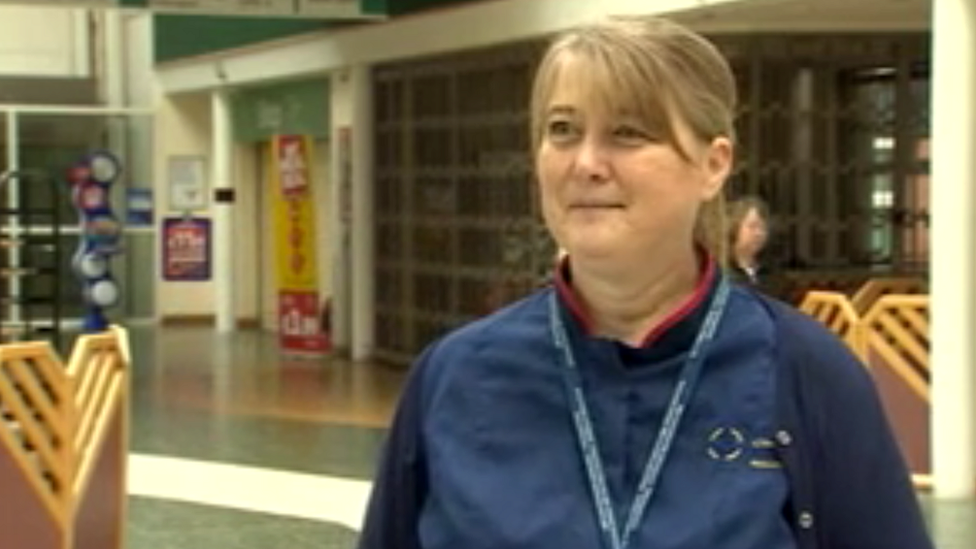
Sharron Price said when patients were ready to leave, relatives should take them home
'Incredible' response from staff
Neath Port Talbot Hospital has converted its rheumatology day unit into a 17-bed medical admissions unit to work with patients recovering from Covid-19.
It will be looking after patients who are unwell but do not need more critical or acute care provided at Morrison and Singleton hospitals in Swansea.
Senior matron Sharron Price said it had been a "very frightening time for everybody", but she said staff had been very keen to offer to do all they could.
"When we opened our rheumatology day unit I thought we might struggle to get nursing staff to volunteer to go down there," she said.
"But no, we've been overwhelmed with the staff here saying 'let me help, I'll do it, I might not have the skills but please teach me'."
Ms Price said the nursing staff were working very closely with doctors to ensure the right things were in place.
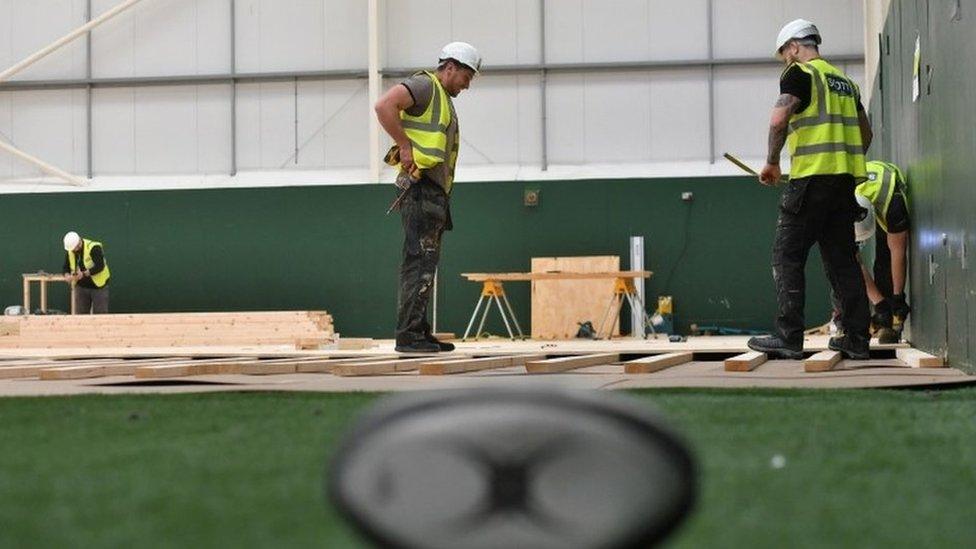
Workers lay flooring during the construction of the field hospital at Llandarcy near Neath, which will provide extra beds
The set-up at the hospital has brought changes, with four medical wards now in place and less surgery.
"We serve quite a frail, older population here and they're the most vulnerable group when you look at Covid-19 so if those people don't need to be in hospital we need to get them to somewhere safer than being here," she said.
"I think one of the pleas I would make is that if you've got elderly relative or any relative in hospital that is ready to leave - and we're working with you to try and plan that discharge - help us, take them home.
"We are seeing Covid-19 coming into our hospitals - it is not a safe place to be. We really do need to keep these frail, vulnerable people as safe as possible."
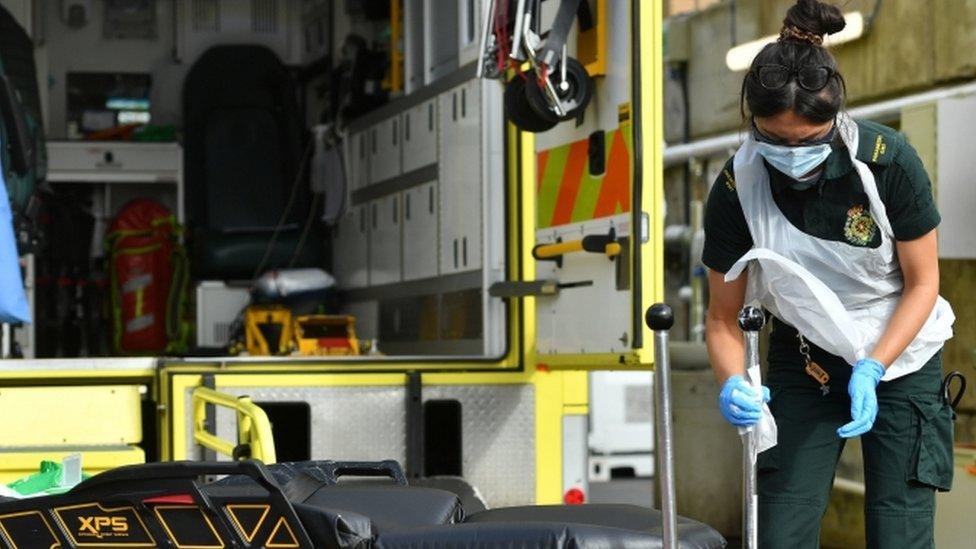
A paramedic cleans down equipment in the ambulance decontamination area outside the Respiratory Assessment Unit
Brian Owens, unit service director for Neath Port Talbot's delivery unit, has been looking at opening up smaller spaces in the hospital to make use of every available corner - as well as making the best use of staff and resources which were needed most.
"I've got consultants from my team working in Cardiff, I've got another working at Princess of Wales in Bridgend and I've deployed two to Singleton hospital," he said.
"A number of my scientific and services staff are working in labs at Singleton and I've released nurses from my theatre recovery suite to support Morriston and the increasing of their ventilation-type capacity."

A SIMPLE GUIDE: How do I protect myself?
AVOIDING CONTACT: The rules on self-isolation and exercise
LOOK-UP TOOL: Check cases in your area
MAPS AND CHARTS: Visual guide to the outbreak
VIDEO: The 20-second hand wash

- Published4 May 2020
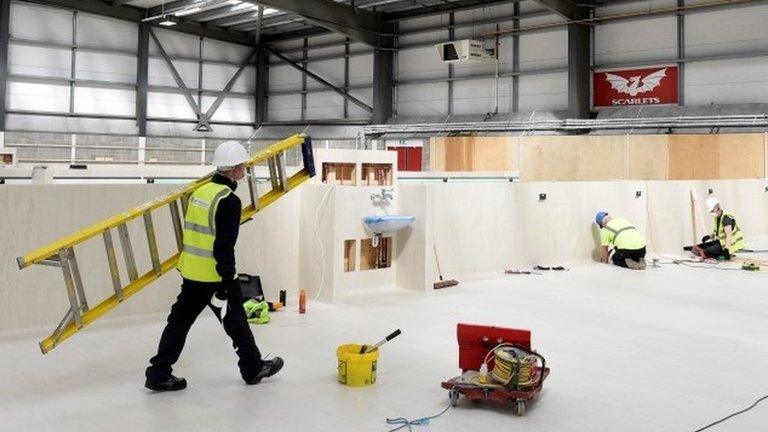
- Published1 April 2020
